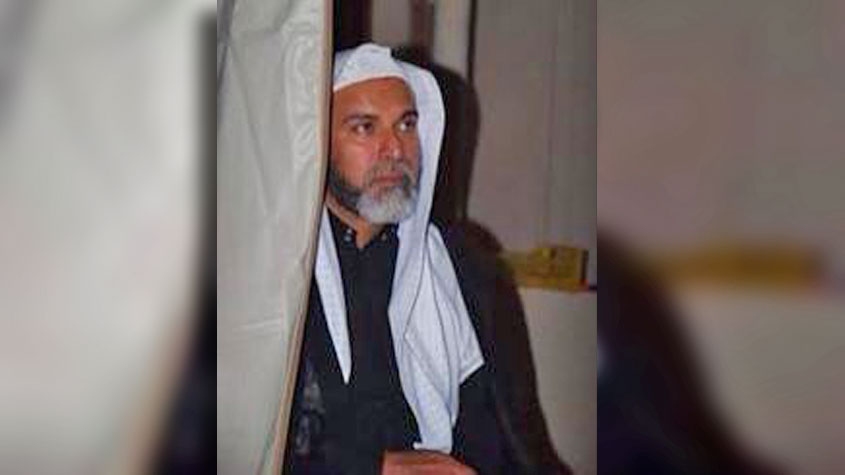
Two thousand days have passed since Saudi Arabia put Al-Sheikh Samir al-Hilal in solitary confinement without allowing his family or a lawyer to meet him, creating uncertainty about his fate and safety despite his intermittent calls.
On 16 December 2015, Interior Ministry forces arrested Sheik al-Hilal as he left his house, although he was not wanted and no arrest warrant was presented. Since the moment of his arrest, Sheik al-Hilal has been subjected to violations that continue even after 2,000 days. Al-Hilal was only able to communicate with his family by phone after7 months of his arrest.
The family could not know where he was being held for some time, and when they called the management of Al-Dammam Prison they informed them he was in Al-Ha’ir Prison in Riyadh which is the country’s largest political prison. In July 2016, they called one of Sheik al-Hilal’s wives and told her that the door for a visit is open, but after his family went to the prison they were prevented from meeting him under the pretext of that the meeting is only allowed for the victim’s wives.
Sheikh al-Hilal did not obtain his right to communicate with his family or the outside world except intermittently calls that do not exceed a maximum of 15 minutes. During the call, he appears to be forbidden from speaking about what he is facing or the charges he is expected to face. The family of Sheik al-Hilal does not yet know his charges, and is also beset by uncertainty about his safety, especially in light of the torture methods Saudi Arabia use in prisons.
The European Saudi Organization for Human Rights (ESOHR) confirms that Saudi Arabia has exceeded all limits in repression and intimidation in the case of Sheik Samir al-Hilal, blatantly underestimating international and domestic laws.
The practices of the Saudi government against Al-Hilal are in stark contrast to Article 119 of the Criminal Procedures Law, which states that the accused shall not be isolated from prisoners for a period not exceeding sixty days, while enabling him to contact his attorney or attorney. “The investigator may – in all cases – order that the accused not communicate with other prisoners or detainees, and that no one visit him for a period not exceeding (sixty) days if the interest of the investigation so requires, without prejudice to the right of the accused to contact his representative or lawyer.”
ESOHR confirms that al-Hilal arbitrary detention, according to the working group on arbitrary detention, he is one those “who were unable to avail themselves of the basic guarantees of the right to a fair trial, and were imprisoned without an independent tribunal ordering, charging or prosecuting them and without access to a lawyer, sometimes subject to solitary confinement for months or years”.
ESOHR points out that Saudi Arabia violates the basic principles endorsed by the Working Group, as article 15 states that a detained or imprisoned person “shall not be deprived of contact with the outside world, in particular his family or lawyer, for more than a couple of days”. The detained or imprisoned person has the “right to be visited by his family members in particular, to communicate with them and to have sufficient access with the outside world”.
ESOHR emphasize that what Sheikh Samir al-Hilal is being subjected to is a crime, and that those responsible must be held account.
ESOHR believes that prolonged solitary confinement, which violates domestic and international laws, is a measure of maximum retaliation, which raises concern for al-Hilal’s life, and raises questions about the extent of the Saudi government’s expansion of this practice.
